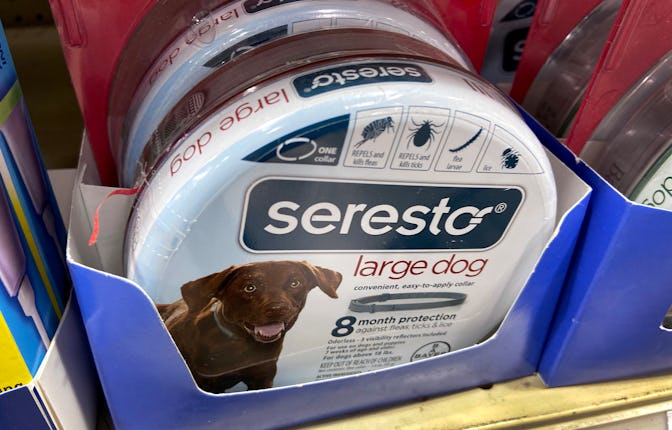These flea collars have been linked to thousands of pet deaths
Why are they still on the market?

Those of us who can’t handle human children turn to cats and dogs to give us a natural hit of dopamine and basically just complete our entire lives. Most of us would give the world to our furballs so it can be alarming when a company appears to blatantly prioritizes money over their health. Seresto, a Bayer brand that makes pet accessories, was accused of selling poisonous cat and dog flea collars last year. Now, thanks to newly released emails, it turns out that the EPA has been ignoring employees who expressed concerns about Seresto’s potentially deadly collars.
The Center for Biological Diversity filed a lawsuit against the EPA and was able to obtain several of the agency’s internal emails last week, per Gizmodo. The emails showed that scientists within the EPA were frustrated with the agency’s inaction over the Seresto flea collars; they’d reportedly received 86,000 complaints about the collar, including 2,340 reports of pet deaths. Not nearly enough has been done, they argue. I’d agree, since the EPA has not yet forced Seresto to recall the collars.
Apparently, the collar releases two types of pesticides that are meant to kill fleas but that are also harmful to cats and dogs. Despite some pretty legitimate concerns, the EPA emails revealed that employees of the agency were even asked to stop emailing each other about the Seresto collars, per the Center for Biological Diversity press release.
The EPA approved Seresto’s flea collars in 2012 but despite the growing mountain of evidence that something about them is not entirely right, Seresto has not pulled any of its products from major retailers like Amazon. While the story was originally broken by USA Today last year, we requested updates from both Seresto and the EPA, neither of which have responded at time of posting.
While none of us should be surprised that a company that stands to lose profit from recalling its most popular product would try and cover its own ass, it’s sad that a government agency that is supposed to protect our pets and the planet appears to have discouraged its own employees from thoroughly investigating the matter. It feels like in America, the burden is on us, the consumers, to make sure that anything we buy won’t kill us (or our pups).